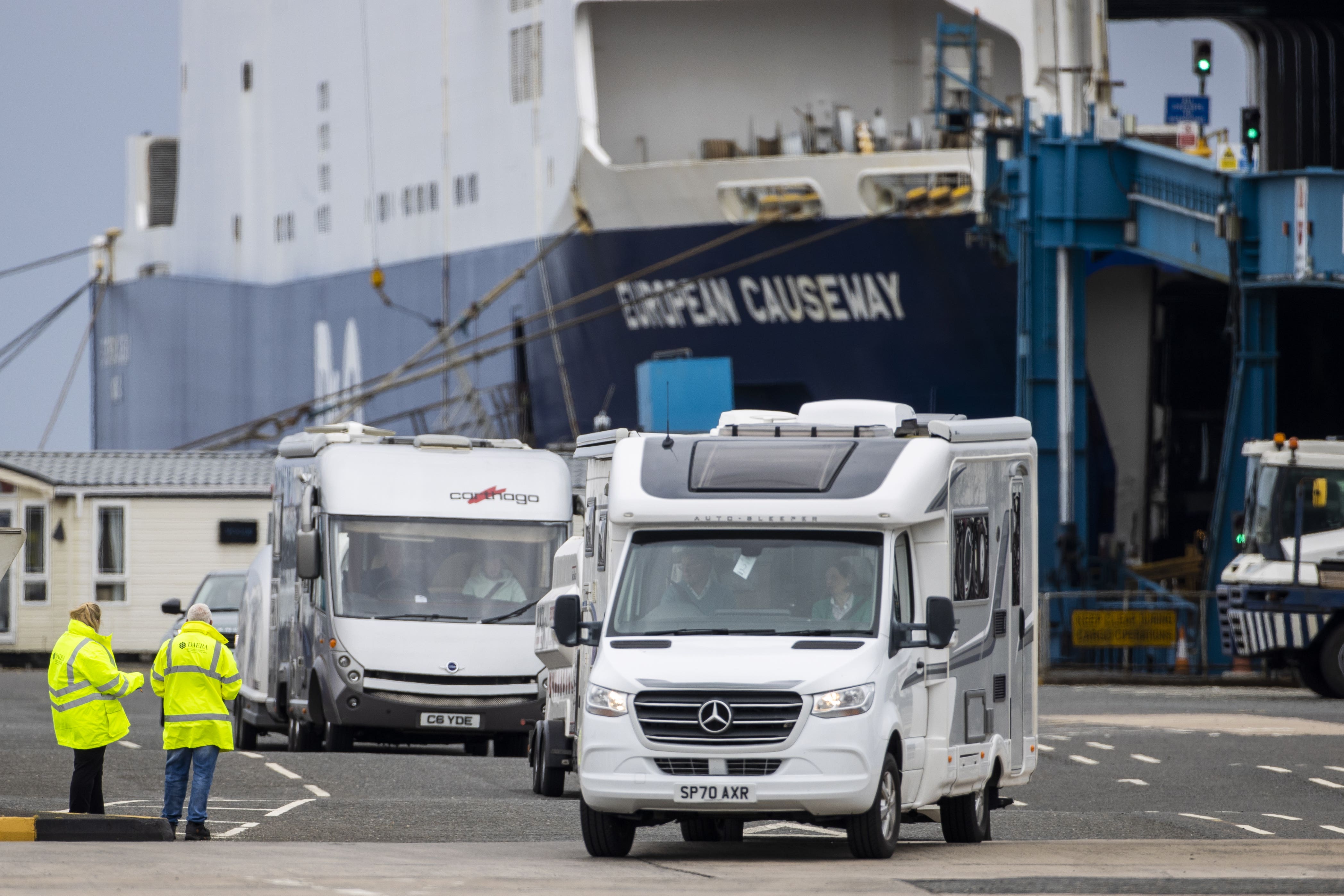35% of veterinary products ‘at risk of discontinuation in Northern Ireland’
A Defra official said the number has come down from an estimated 51% last year due to negotiations with stakeholders.

An estimated 35% of veterinary products are at risk of discontinuation in Northern Ireland following the UK’s withdrawal from the EU, a House of Lords committee has heard.
That figure has dropped from 51% last year following discussions with stakeholders, a senior Defra official said.
The House of Lords Windsor Framework Sub-Committee heard from Northern Ireland Minister Steve Baker as well as two officials on Wednesday during its examination of veterinary medicines and the framework.
Mr Baker has also taken on a role as Minister of State in the Cabinet Office looking at the implementation of the Windsor Framework, an update to the Northern Ireland Protocol deal on post-Brexit trade arrangements between the region and the rest of the UK.
The protocol, negotiated to avoid a hard border in Ireland after Brexit, tied Northern Ireland to the rules of the EU single market for goods.
The Windsor Framework, which was introduced to reform the protocol earlier this year, reduced the application of EU rules in Northern Ireland and contained mechanisms for managing divergence.
Committee chair Lord Jay of Ewelme asked about figures compiled by the Veterinary Medicines Directorate (VMD) last year that around 51% or 1,700 products were at risk of discontinuation in Northern Ireland.
Gavin Hall, director of authorisations at Veterinary Medicines Directorate at Defra said that had been reduced to around 35%.
“Some of those supply lines have been amended, so they’re now rerouting their supply lines, not through Great Britain but through the Republic of Ireland and so those products are no longer a risk,” he told peers.
“The latest figures have reduced that number, so it’s no longer 51%, it’s about 34%-35%.
“This is indicative of the efforts that have been made in the way we’ve negotiated with the stakeholders, with the pharmaceutical industry, how they’re responding, and how we’re encouraging and wanting people to be able to apply the medicines regulations in order to have a continued supply of products into Northern Ireland.
“But as we get that number down, there’s going to be a point where you can no longer lower that number and that’s when we need to be having those discussions, technical discussions, with the (European) Commission.
“Here is the difficult nub of the issue, we’ve got rid of the chaff, this is the bit that we need to resolve, and I think at that point when the commission is comfortable with the efforts we’ve made. That should be a point where we can have that operational and technical debate.”
Mr Baker added that they know how serious the risks are, and said they will “not allow them to crystalise”.
“We will invite political representatives with expertise to be part of this. We will have experts in the field of veterinary medicine and so forth,” he said.
“The job of ministers is to make sure these risks don’t crystallise. We know how serious they are, we’ll strain every sinew to make sure that the risks do not crystallise.”
Earlier in the meeting, Ulster Unionist peer Lord Empey challenged Mr Baker, saying they have been “unable to get a straight answer to anything”.
“Is there a border in the Irish Sea, a trade board in the Irish Sea? Nobody will say from a ministerial point of view, there is or there isn’t so I’ll ask you,” he said.
Mr Baker responded, saying that by the “standard of comparison to any other, what is known as a border, anywhere else around the world, there is not a border in the Irish Sea”.
“I admit freely that the institutional arrangements pertaining to Northern Ireland are not the same as they are in Great Britain, but is Northern Ireland’s place secure within the union, yes. Have we legislated for the free flow of goods from Northern Ireland into Great Britain? Yes.
“I know that this framework, in leaving in place some EU law, is a very hard compromise for unionists and Eurosceptics. It’s a hard compromise for me. I’d like to have done better for unionists and Eurosceptics but after eight years of this country, tripping over with its shoelaces tied together arguing with itself about what kind of form Brexit should take, and so on. This is the best we can do.
“I think this is a pretty good bet.”
He said he is committed in his role in the Cabinet Office “to complete the job in a way that is tolerable to good for everyone”, adding: “I want to do my level best to make the most of the opportunity before us.”